2023年4月20日,国际关系学院、东北亚研究院举办本学期第三次学术沙龙活动。本次沙龙以线上线下相结合方式,邀请国际关系学院外籍教师Anna Bikerniece以“Global Citizen Initiative: UNESCO Education Policies through the Prism of Identity Studies”为主题展开交流与讨论。国际关系学院孙钰副教授做主持和引谈。以下为Anna Bikerniece的汇报内容。
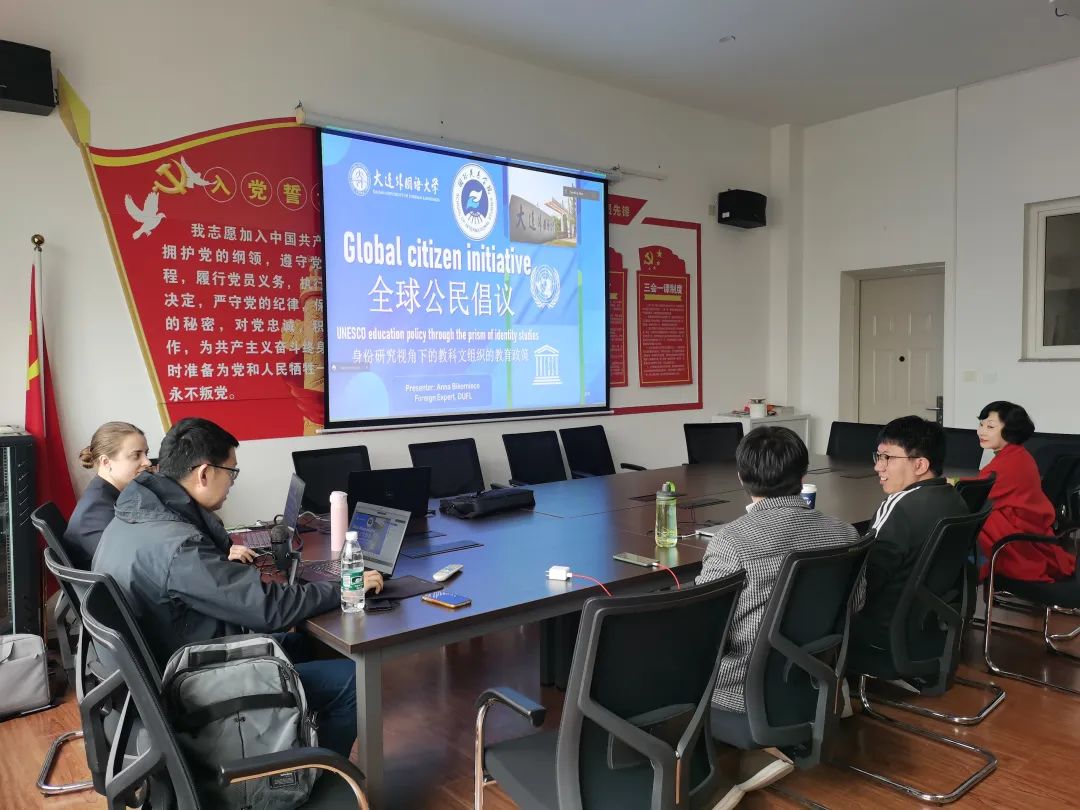
“Since wars begin in the minds of men, it is in the minds of men that the defenses of peace must be constructed”. This is how international community perceived the world and humanity in 1945, when the idea of UNESCO came into being. This abstract from the UNESCO Constitution preamble laid foundation to future UNESCO policies in creating a specific mindset for people throughout the Globe in order to avoid further conflicts.
The idea to establish a certain mindset is very close to the identity studies. The theory of identity studies assists in one of the most important UN tasks – creation of stable and sustainable world.
Identities are a complex notion, covering almost every possible area of human activity. There are different types of identity – individual and group identity. There are various levels of identity – local, regional, national and supranational (or global). The principle issue in identity studies derives from absence of a universally recognized definition and classification. Majority, however, agrees that there is a division of identity into positive – inclusive identity, and negative – dichotomy of Me-Other identity. These two coexist together, both for human benefit, although their balance at different levels of identity can be various. When discussing international relations, one usually focuses on national or transnational social group identity.
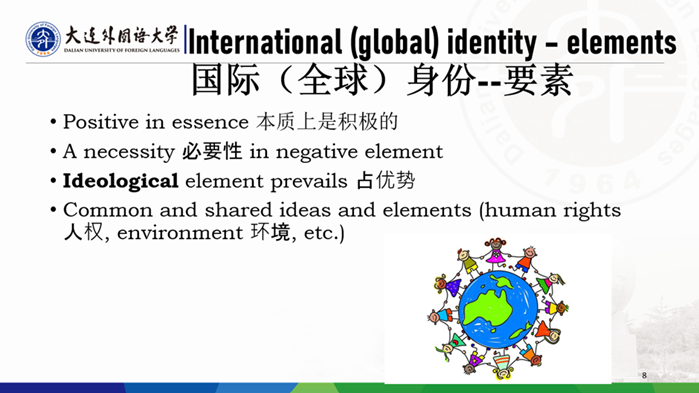
When discussing UNESCO policies of Global education and Global citizen initiative, one focuses on supranational or global identity. This identity, in essence, is a positive identity, because is discusses inclusion of various national and ethnic groups into a global community. The major challenge for global identity, however, is a lack of defining elements, which leads to uncertainty in definition and problems with acquisition.
Traditionally, the elements that shape national social identity are usually shared territory, language, values, traditions and culture, shared history and legitimate political institutions. In case of global identity, all of these elements exist either in limited or over complex form. This, obviously, poses a great pressure on the UNESCO attempts to create Global citizenship.
At the same type, all elements of identity can be divided into two aspects – immaterial (ideological) and material. Ideological elements consist of ideas and beliefs, for example idea of human rights and freedoms, democracy, equality, solidarity, Global warming etc. These create unification in the minds of people by believing in them. Material elements, on the contrary, create the feeling of belonging by exercising physical involvement – seeing, hearing, touching, and feeling. These can be flag of the United Nations, which we can see, or the General Assembly meetings, which we can see and hear. Traditionally, material elements are more difficult to create and spread, because they involve more physical interrelation and input, which, in turn, involve finance and resources. Ideally, the material element should prevail. If it does so, people feel more attached to the ideological part, and exercise feeling of belonging, which leads to the successful spread of identity.
In case of supranational and global identities, it is highly difficult to construct them, because, first, the material elements are hard to create, and, second, hard to spread among the nations, due to complexity and diversity of humankind. Moreover, these should be elements that are naturally accepted by everyone, which is extremely difficult to achieve due to variety of cultures and traditions. For this reason, the UN has always been careful about choosing ideas that can possibly embrace all the humanity. In 2015, the UN presented 17 Sustainable Development Goals that more or less correlate to the global interests. With these, UN and UNESCO incorporated Global citizenship education. This policy should not intervene with sovereign rights of states, and at the same time pursue goals of peace and environment protection.
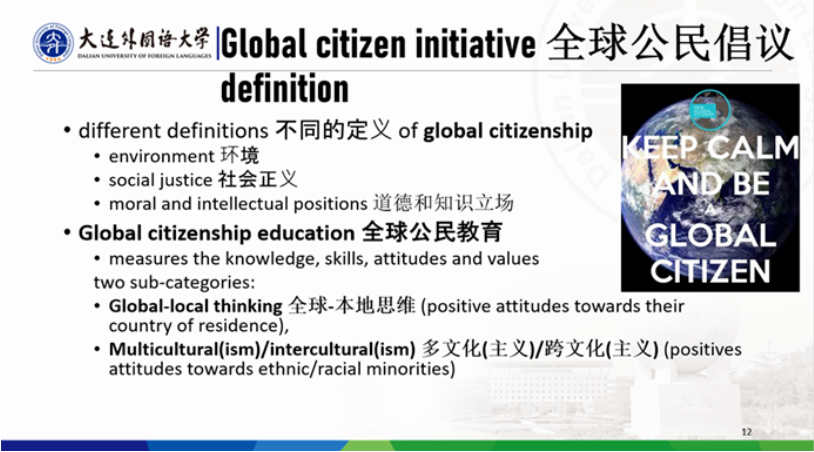
The primary issue with the Global citizenship initiative is the lack of sound and accepted definition. UN agrees that Global citizenship is about environment and social justice worldwide, and includes moral and intellectual positions. However, it is a flexible notion which perception varies from country to country. The definition of the Global Citizenship education, however, is sounder. It measures the knowledge, skills, attitudes and values of two sub-categories – global-local thinking and multiculturalism or interculturalism. One of the major programmes UNESCO advocates for is Education for All, within which the spread of Global citizenship ideas happens.
Historically, since the first years of its existence, UNESCO pursued the goal to create global thinking. The Conferences following the establishment of the organization highlighted the importance of moral and spiritual development that could promote international spirit. Gradually, though, new challenges to the World order emerged. Instead of establishment of understanding between peoples, the World faced the Cold War. Moreover, the overuse of resources and uncontrolled technological development lead to environmental threats. By 1970s, it became obvious that ideas of international mindset based only on peace and mutual understanding would not work. The UNESCO Faure report, published in 1972, mentioned not only fundamental solidarity, but also negative effects of globalization and threats to environment. This report contributed to development of Sustainable Development ideas in 1980s. Gradual implementation of Sustainable Development Goals since then resulted in a new unifying idea – the humanity needs to unite against environmental threats or will be destroyed. This was the first time when a purely positive global identity gained a negative element – humankind versus Global environmental threats. UNESCO continued its efforts in promoting Global education standards and simultaneously promoting Global citizenship ideas. In 1990, the Jomtien Declaration announced the programme Education for All, which was a structured reflection of previous policies. In 2015, Incheon Declaration promoted Education for Sustainable Development. These aspirations for a better future for all, however, faced unprecedented challenges with the outbreak of COVID-19. The following spread of international conflicts added to the turmoil of post-COVID era. The result, according to UNESCO calculations, is a significant setback in realization of Global Education and Global citizenship programme. UNESCO sees an opportunity in restoring the fragmented world order and peace by creating a new Social Contract in education, which will embrace all stages of human life by a life learning, using appropriate schools, curricula, pedagogy and teaching process that would result in sustainable and inclusive education.
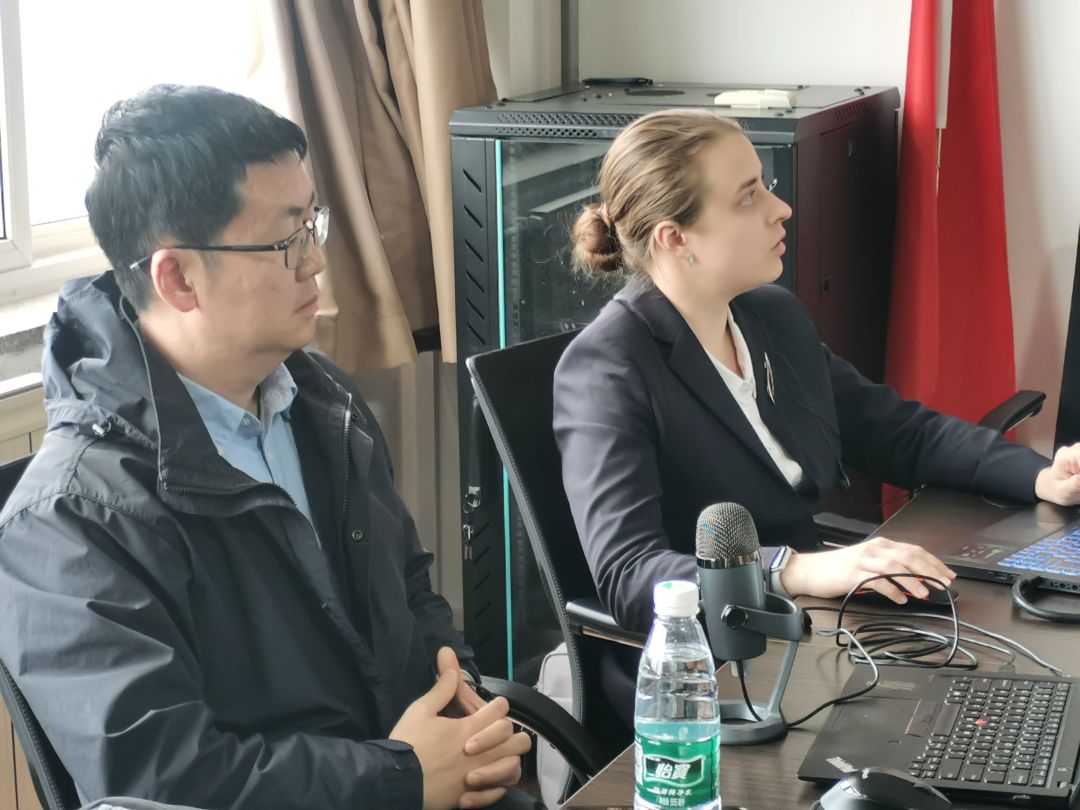
However, the challenges remain considerable. First, the goals set in pre-COVID times were far from fulfillment. Despite gradual improvement of Global citizenship ideas implementation, the progress was quite slow. According to the 2019 Global Education Monitoring Report, only 9% of national curricula included Global Citizenship. In contrast, 60% of curricula included human rights, 43% - sustainable development, and 14% - gender equality. This result reflects several issues that are intrinsic to the Global Citizenship initiative. First, lack of proper definition. The lack of definition leads to misunderstandings or impropriate interpretations. Second, lack of defined elements, both ideological and material. While some elements are well defined and promoted actively throughout the globe, like human rights, it is difficult to understand relations and attributions for other elements, like democracy, freedoms, and environment and so on.
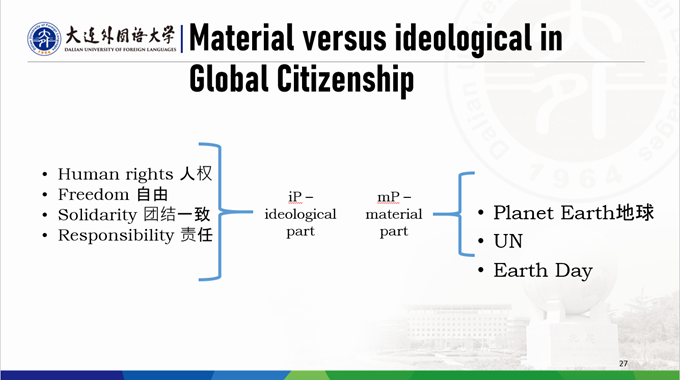
Third, absence of a variety of material elements. While ideas have been developing significantly during more than 80 years of UN activity, material elements are either still emerging or underdeveloped. Fourth, communication issues. Communicating ideas and possibilities that Global citizenship can bring is a difficult task primarily due to number of people inhabiting our planet, but also because of cultural and linguistic differences. Technology could help in spreading information, but many experts raise concerns about the increasing gap between developed and developing countries instead.
Overall, Global citizenship initiative can become the means for overcoming the existing conflicts and environmental threats. It, as an embracing and unifying idea that has both positive and negative elements, creates basis for human cooperation and realization of mutual coexistence. It, however, is far from global recognition due to many challenges that humanity faces.
文字:Anna Bikerniece
审核:郝利群 薛晓芃 吕平
编辑:韩德睿